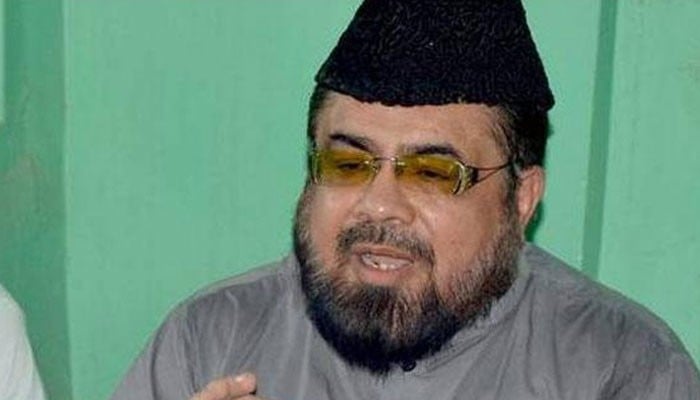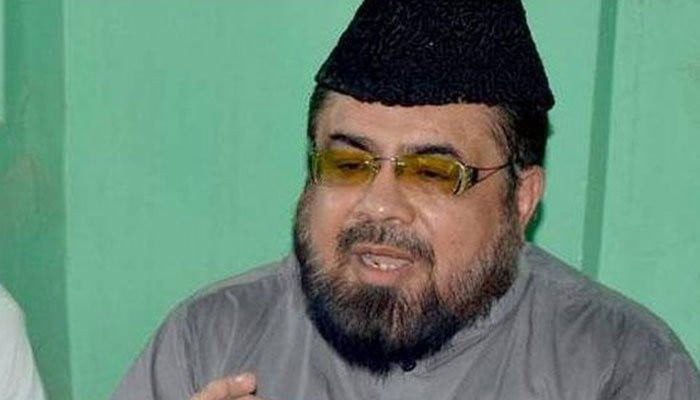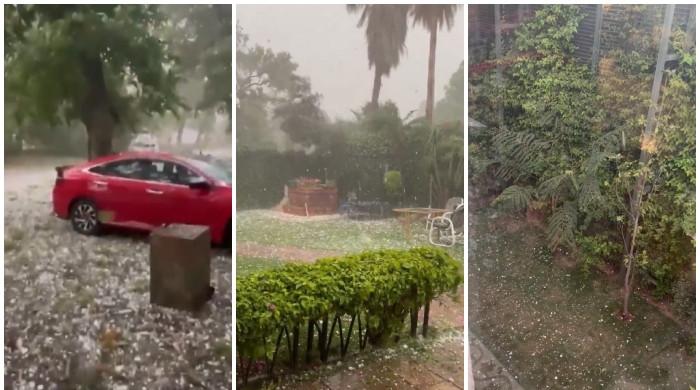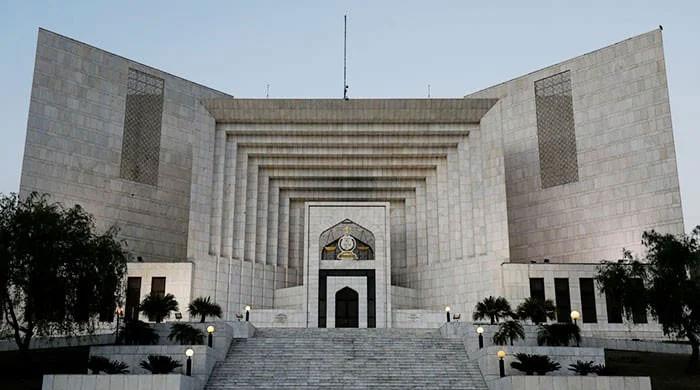Mufti Qavi discharged from hospital, shifted to police station
The accused will soon be undergoing a polygraph test in Lahore, which helps detect if the person is telling the truth
October 24, 2017
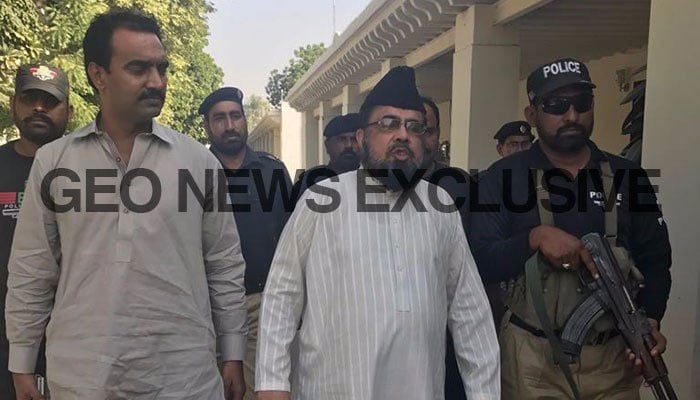
MULTAN: Mufti Abdul Qavi, the cleric accused in the murder case of Pakistani social media sensation Qandeel Baloch, was discharged from hospital on Tuesday, five days after he complained of chest pain.
Mufti Abdul Qavi had complained of chest pain and was admitted to Multan Institute of Cardiology on Thursday. The accused, who has had a medical history and two stent placements, was admitted to the hospital after medics found his blood pressure higher and heartbeat faster than normal.
After being discharged from the hospital, police escorted the accused to a police station.
The accused is on a physical remand until October 27.
He would also be taken to Lahore during this period to undergo a polygraph test, which helps detects if the person is telling the truth by monitoring variations in certain body activities.
Mufti Qavi was arrested on October 18, after a sessions court, hearing the murder case, dismissed his bail plea and ordered police to arrest him for failing to cooperate with the prosecution.
He was remanded into police custody on October 19, wherein hours later he complained for chest pain.
A judicial magistrate on Monday extended the remand of the accused for another four days after he recorded his statement in the case.
Qavi was later transferred back to the hospital after his statement was recorded in an ambulance.
The murder
Qandeel Baloch, who shot to fame for her "bold" selfies that polarised Pakistan, was allegedly strangled in July 2016 by her brother Muhammad Waseem.
In his confession, Waseem claimed she had brought shame on the family and owned up to his crime in a press conference after his arrest.
Prior to her death, Baloch, whose real name was Fauzia Azeem, spoke of worries about her safety and had appealed to the interior ministry to provide her with security.
Federal Minister for Religious Affairs Sardar Yousaf suspended Mufti Abdul Qavi’s membership of Ruet-i-Hilal Committee after Baloch released pictures of herself with the cleric in a hotel room weeks before her murder, wearing his hat and pouting.
She had accused him of inappropriate behaviour.
"I thought I would expose him as he is in reality," she told AFP at the time, adding: "He is a different person alone and different when he has his followers around him."
She had faced frequent abuse and death threats.
The so-called 'honour-killing' had sent shockwaves across the country and triggered an outpouring of grief on social media for Baloch.
